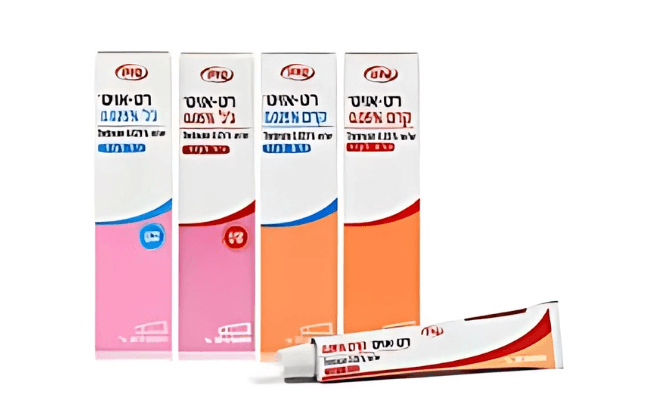Renova / Retavit (
generic name: tretinoin) is a topical cream containing
tretinoin, a
retinoid derivative of vitamin A, primarily used for the treatment of
facial fine wrinkles,
mottled hyperpigmentation, and
tactile roughness in patients undergoing comprehensive skincare and sun protection routines.
As a
retinoid, Renova works by affecting skin cell turnover, stimulating the renewal of skin cells to improve skin texture and tone, leading to a reduction in the appearance of fine lines, uneven skin patches, and surface roughness associated with photoaging. It is generally used in adults seeking long-term skin quality improvements as part of a dermatologist-supervised regimen.
Renova is not a moisturizer, and it does not treat deeper wrinkles or significantly sagging skin. The effects are best seen when used consistently over months, with visible improvements in skin texture and evenness generally appearing over 6-12 weeks. Daily use of sunscreen is strongly recommended during Renova treatment due to increased skin sensitivity to sunlight, which may otherwise exacerbate pigmentation issues or cause irritation.
Dosage
Renova should be applied to clean, dry skin daily, preferably in the evening, at least 30 minutes after a gentle wash. A pea-sized amount of the cream (5mm diameter) is typically sufficient for the entire affected area of the face. Avoid the area surrounding the eyes, ears, nostrils, angles of the nose, mouth, and other sensitive areas, as Renova can cause irritation.
Caution
Do not use Renova cream) if you are pregnant or attempting to become pregnant. If you become pregnant while using Renova, please contact your physician immediately.
Storage
Store Renova at room temperature (20°-25°C / 68°-77°F), away from direct sunlight and heat, and ensure the cap is tightly closed after each use.
For more useful tips on safe handling, please read our guide here.
Questions About Renova
How long does it take for Renova to improve skin appearance?
Renova users may see some skin texture and tone improvements within 6-12 weeks, but optimal results can take several months of consistent application.
How does Renova differ from other retinoid creams?
Renova is specifically formulated to address
fine wrinkles,
mottled hyperpigmentation, and
tactile roughness due to photoaging, while other retinoid creams may focus on treating acne or more pronounced skin issues. This unique formulation is designed for adults to improve skin texture and tone over time.
Can tretinoin in Renova help with acne?
Renova is not specifically designed for acne but rather for photoaging effects like fine wrinkles and pigmentation issues. A healthcare provider can help determine the best formulation for skin concerns like acne.
Can Renova be combined with other anti-aging treatments?
Yes, but
Renova should be used with caution alongside other
anti-aging treatments like chemical peels or laser therapy, as combining them may increase the risk of skin irritation. Always consult a dermatologist for a personalized skincare plan.
This text is for informational purposes only. Please consult a doctor or pharmacist before using any medication.
Read the information leaflet that comes with the medication.
Most people who use Renova do not experience any adverse side effects. Doctors prescribe this medication because they assess the benefits of such treatment outweigh any likely unwanted effects.
Some of the side effects that have been reported include redness, dryness, peeling, itching, and a sensation of warmth at the application site, especially during the initial weeks of treatment. In case of severe redness, swelling, or blistering, consult a healthcare provider as soon as possible. As Renova increases skin sensitivity to sunlight, daily sun protection (minimum SPF 15+) is essential, and exposure to sunlight or artificial UV rays should be minimized.
Not all side effects are listed here. If these or other unlisted symptoms persist or worsen, consult a healthcare provider or pharmacist.
Renova is FDA-approved for the treatment of facial fine wrinkles, mottled hyperpigmentation (uneven dark spots), and tactile roughness in patients using a complete skincare regimen, including sun protection. It is commonly prescribed to individuals looking to improve overall skin quality related to photoaging effects.













